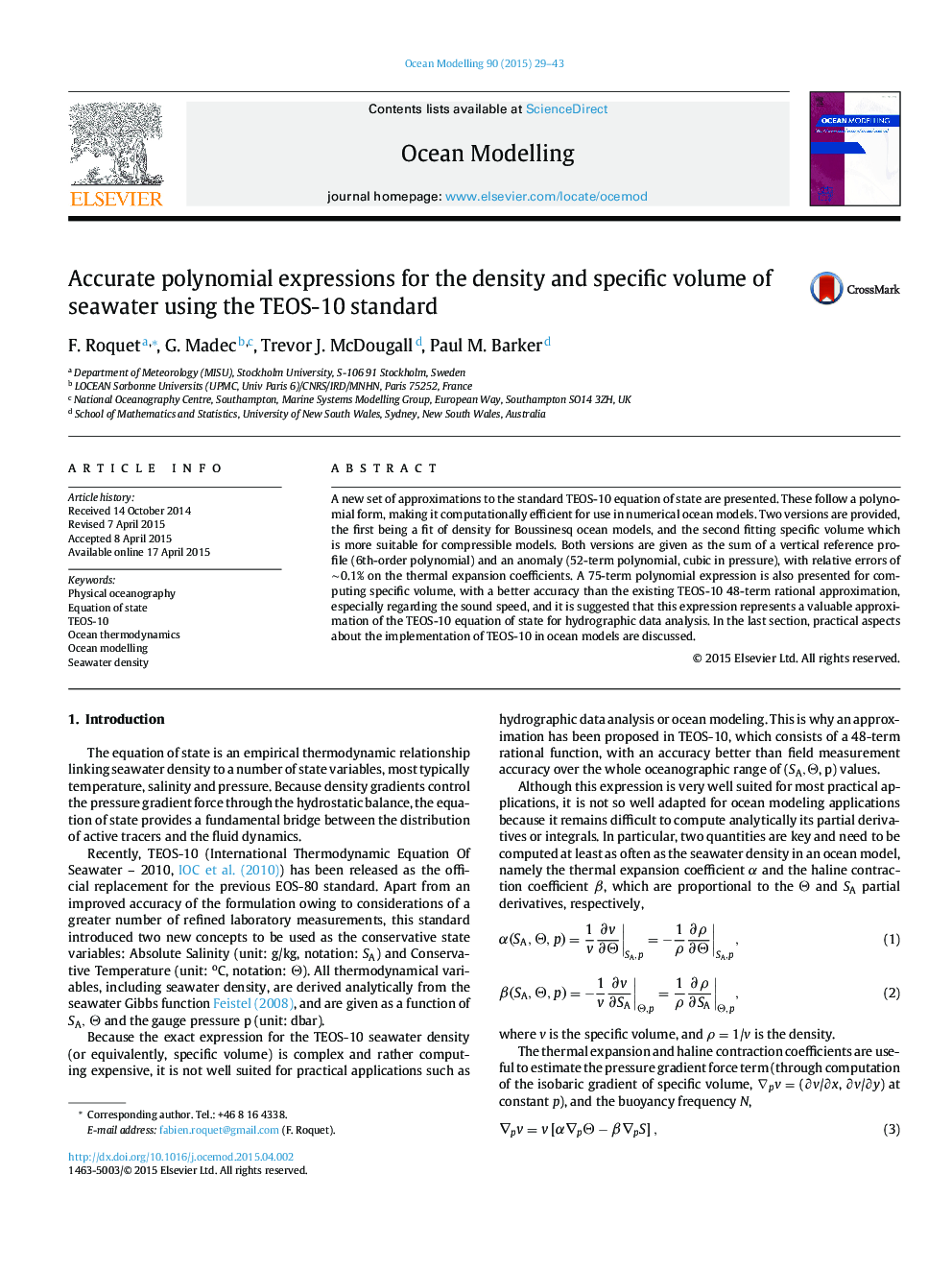| Article ID | Journal | Published Year | Pages | File Type |
|---|---|---|---|---|
| 4551985 | Ocean Modelling | 2015 | 15 Pages |
•The new standard TEOS-10 should be implemented in every ocean models.•Polynomial approximations designed for ocean models are proposed here.•Both Boussinesq and non-Boussinesq versions with 55 terms are presented.•A 75 term polynomial expression, with accurate sound speed, is also given.
A new set of approximations to the standard TEOS-10 equation of state are presented. These follow a polynomial form, making it computationally efficient for use in numerical ocean models. Two versions are provided, the first being a fit of density for Boussinesq ocean models, and the second fitting specific volume which is more suitable for compressible models. Both versions are given as the sum of a vertical reference profile (6th-order polynomial) and an anomaly (52-term polynomial, cubic in pressure), with relative errors of ∼0.1% on the thermal expansion coefficients. A 75-term polynomial expression is also presented for computing specific volume, with a better accuracy than the existing TEOS-10 48-term rational approximation, especially regarding the sound speed, and it is suggested that this expression represents a valuable approximation of the TEOS-10 equation of state for hydrographic data analysis. In the last section, practical aspects about the implementation of TEOS-10 in ocean models are discussed.
